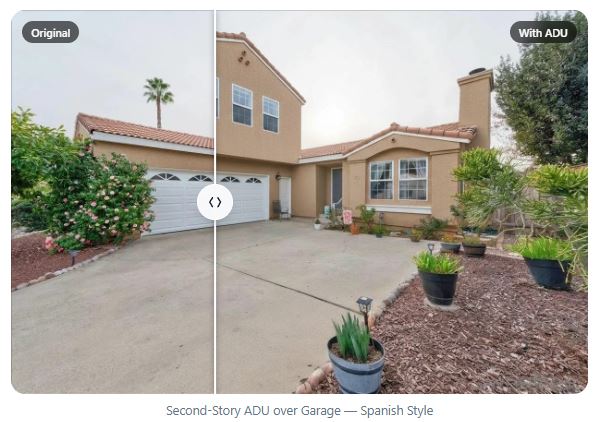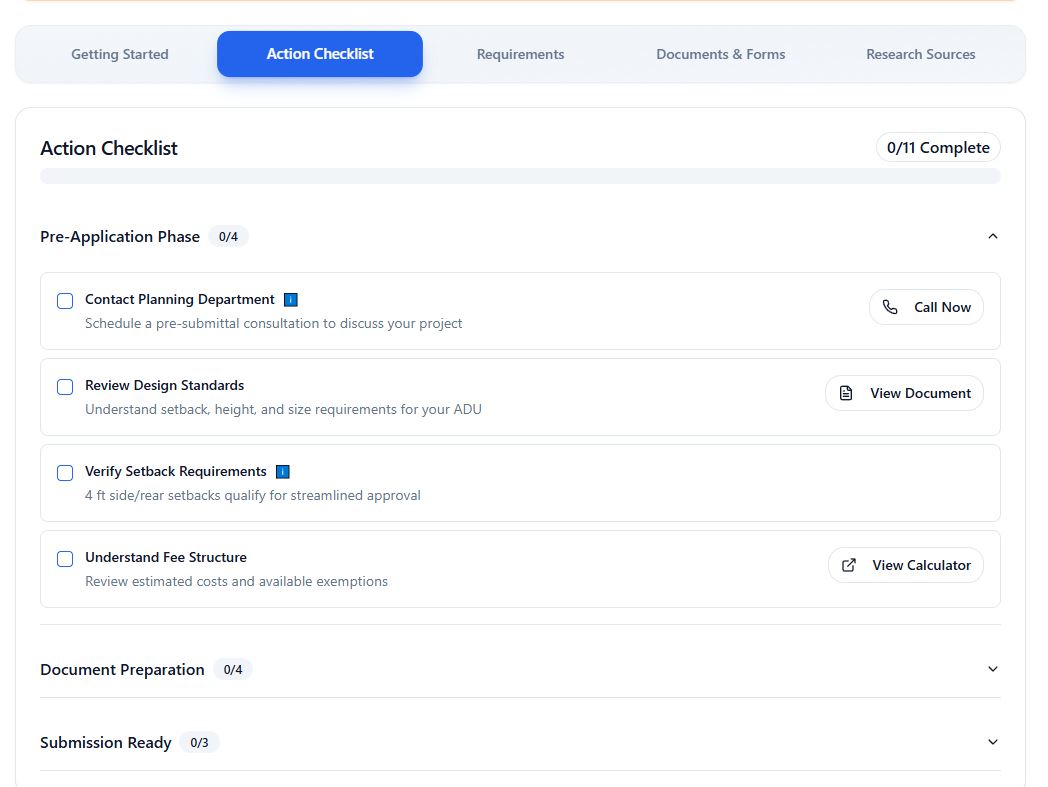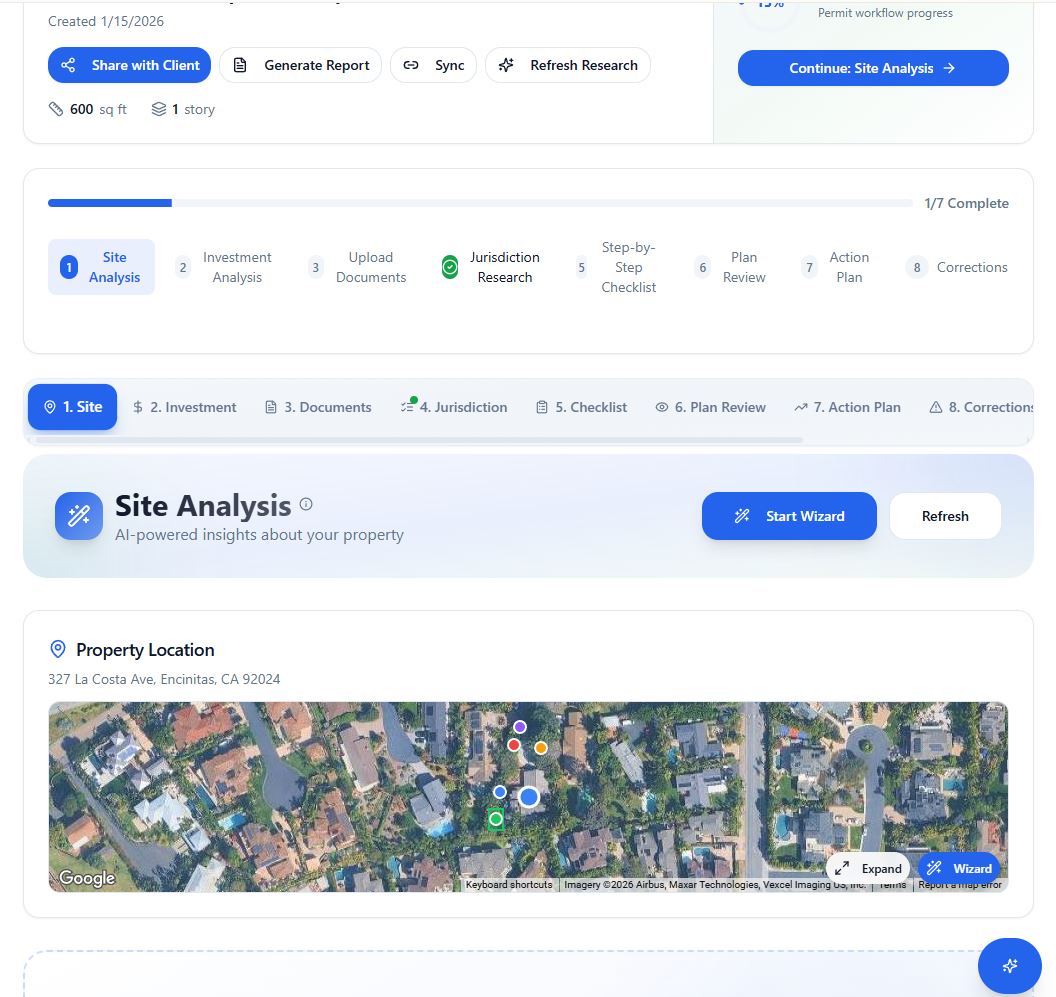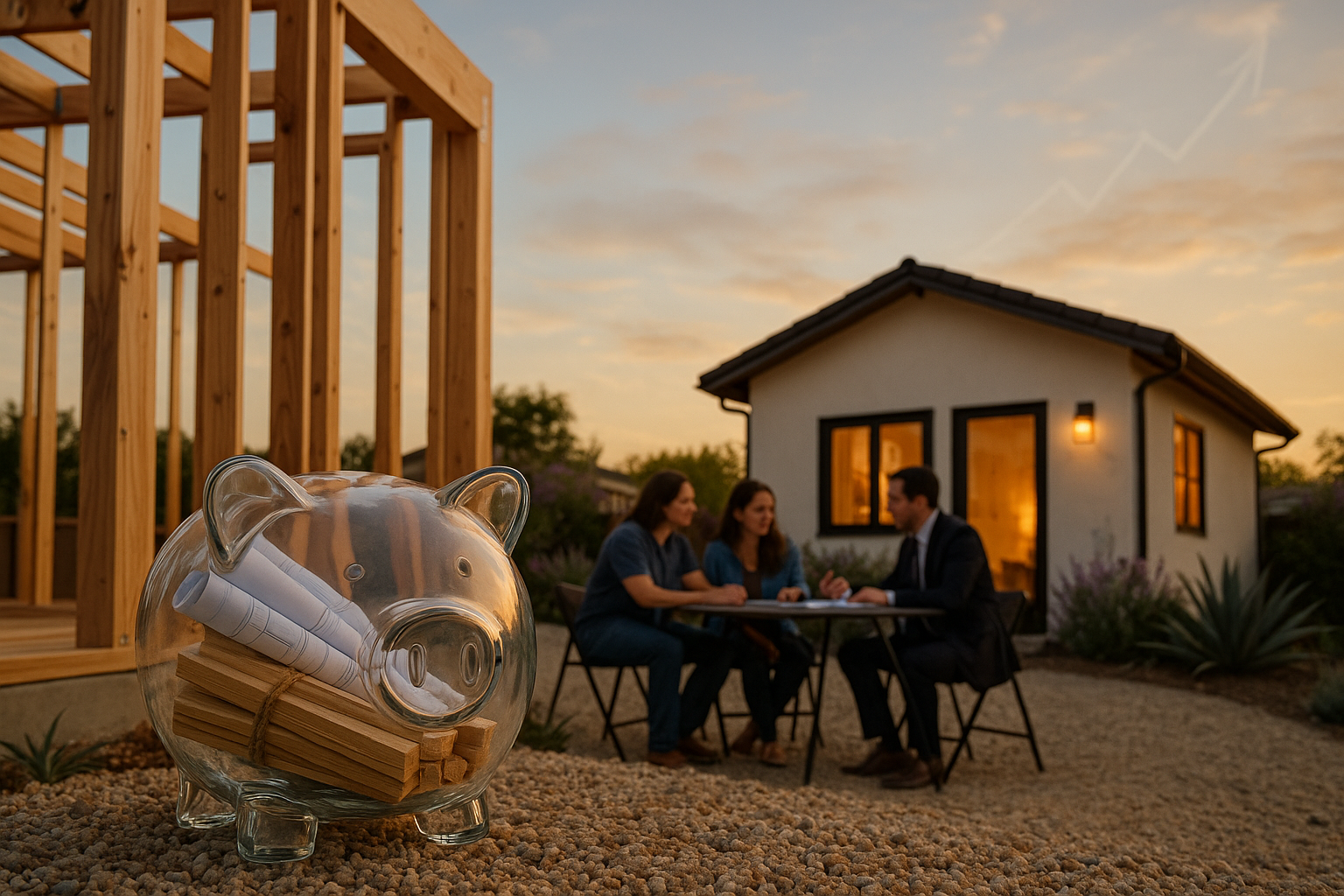Building an ADU involves numerous considerations, from understanding local regulations to managing construction costs and timelines. It's essential to conduct thorough research and consult with professionals to ensure a smooth and successful ADU project.
Building an Accessory Dwelling Unit (ADU) yourself can be a rewarding project, offering not only potential savings on labor costs but also a deep sense of personal achievement. However, it's a significant undertaking that requires careful planning, a broad set of skills, and a clear understanding of the legal and technical requirements involved. Here’s an expanded view on self-building an ADU:
Understanding the Scope and Complexity
- Assess Your Skills: Building an ADU involves a wide range of tasks, from foundation work, framing, and roofing to plumbing, electrical, and finishing work. Honestly assess your skills in these areas and consider where you might need to hire professionals.
- Legal and Regulatory Compliance: Familiarize yourself with local zoning laws, building codes, and permit requirements. Your ADU design must comply with these regulations, and you'll need to secure the necessary permits before starting construction. This process can involve submitting detailed plans and passing inspections.
- Design and Planning: Designing an ADU that meets your needs and complies with local regulations can be challenging. Consider using pre-designed ADU plans that can be adapted to your property or consulting with an architect or designer for a custom solution.
- Budgeting: Accurately estimating the costs of materials, tools, permits, and any professional services you'll need is crucial. Keep in mind that DIY projects often encounter unexpected expenses, so include a contingency budget.
Preparing for Construction
- Site Preparation: Preparing the site for construction may involve clearing land, grading, and ensuring proper drainage. This stage is crucial for preventing future issues with the ADU.
- Foundation Work: Laying a foundation requires precise work to ensure the structure's stability. Options include concrete slab, crawlspace, or basement foundations, each with its own set of considerations and techniques.
- Framing and Structural Work: Framing the ADU involves constructing its skeleton. This stage requires a good understanding of structural integrity and safety standards.
- Roofing, Windows, and Doors: Installing the roof, windows, and doors involves careful work to ensure the building is weather-tight and insulated. Proper installation is crucial to prevent leaks and energy loss.
- Plumbing and Electrical: These systems require specialized knowledge and often need to be inspected and approved by local authorities. Mistakes in plumbing or electrical work can lead to significant safety hazards.
- Insulation and Drywall: Proper insulation is key to the ADU's energy efficiency, while drywall installation requires skill to achieve a smooth finish.
- Finishes and Fixtures: Finishing touches like flooring, cabinetry, painting, and fixture installation can be time-consuming but also allow for personalization of the space.
Considerations for DIY Builders
- Time Commitment: Building an ADU is time-consuming. Consider whether you have enough time to dedicate to the project and how it will fit around your other responsibilities.
- Tools and Equipment: Ensure you have, or can access, all the necessary tools and equipment. Renting specialized equipment can be a cost-effective option for one-time uses.
- Learning and Assistance: Be prepared to spend time learning new skills. Online tutorials, workshops, and advice from experienced builders can be invaluable resources. Don’t hesitate to enlist the help of friends or professionals for tasks that are beyond your skill level.
- Safety: Always prioritize safety. Use personal protective equipment and follow best practices to prevent accidents.
- Quality and Resale Considerations: Remember that the quality of your work will affect not only your enjoyment of the ADU but also its value should you choose to sell your property in the future.
Self-building an ADU can be a complex but rewarding project. It's essential to approach it with thorough preparation, realistic expectations, and a willingness to seek professional help when needed. By doing so, you can ensure the success of your ADU project and enjoy the satisfaction of having built it yourself.











